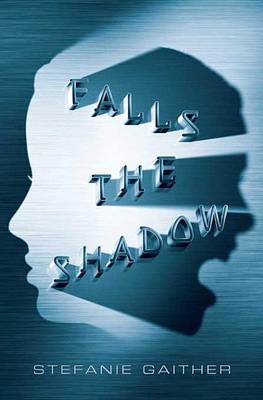Reviewed by shannonmiz on
What I liked: Clones. If you haven't been paying attention, I need all the clones. Clones scare the absolute bejeezus out of me. Because there is not any way that a real clone of a human being wouldn't be all sorts of messed up. And I suppose these clones were, though not necessarily based on the biological/creep factor. The Huxley people who created the clones have implanted them with some kind of memory recording technology, so if the "origin" bites it, the clone can pick right up like nothing ever happened. So it wasn't exactly the creepiness I expected, but it was definitely disturbing.
I also liked Cate, the main character. I enjoyed that she was really trying to decipher the morality of the situation in general, and that she was a bit conflicted between the choices she had to make. She had quite a few moments of real introspection while trying to figure out who and what she could trust. I also really liked that she wasn't buying Violet 2.0 from the start. While the adults tried to pretend that 2.0 was legit, Cate knew that you can't ever replace a human, regardless of DNA and technology.
The romance situation was fine with me too. Jaxon and Cate had known each other for some time, and Cate had always been fond of Jaxon (of course, from afar). I don't know what Jaxon thought of Cate, but I do enjoy how Cate has to decipher Jaxon's motives before deciding how to proceed. Jaxon brings his quasi-brother Seth into the mix, and he is good for some snarky humor and a couple of feels. Violet 2.0 really is fascinating too. I couldn't help but like her, though I was never quite sure she could be trusted.
The plot moves along quite quickly, and I was definitely invested enough to really want to know what was coming next.
What I didn't: The adults in this book were complete trainwrecks. Who let these people be in control of anything? This group couldn't manage a 7-11, let alone an entire community plus an army of clones. It seemed a bit convenient to me that absolutely everyone in power was either clueless about what was happening, or trying to be evil, save a handful of fairly useless people.
I really would have liked a bit more world-building too. I get that Cate didn't know a lot about what was going on in the world around her, but I think it was kind of important to know what led to a world in which cloning would ever become acceptable (even if controversial). There is some kind of biological warfare that leaves the population decimated, and some citizens still bear signs of the illness, but that is about the extent of it. I have a lot of questions that I think could have benefited from more explanation, perhaps even a second book.
Basically, there were a lot of times, even in moments of action, that I felt a bit apathetic. I kind of had an idea of how things would shake out after a certain point, so it lost a bit of appeal. In truth, the more I thought about the book, the more indifferent I felt. While I was reading, I did like it, and I am glad I read it, but I don't think it will leave a huge lasting impression.
*ARC received from Simon & Schuster via Edelweiss for review.
Reading updates
- Started reading
- 11 August, 2014: Finished reading
- 11 August, 2014: Reviewed
